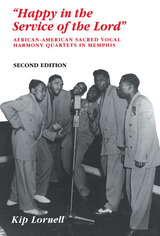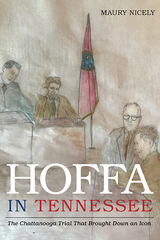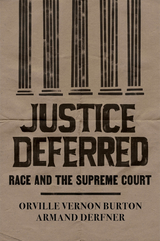3 start with H start with H

The author traces the evolution of such groups as the I. C. Glee Club Quartet, the Spirit of Memphis, the Sunset Travelers, and the Southern Wonders from the early 1920s to the late 1980s. Drawing on extensive interviews and field research, Lornell describes a unique world of radio personalities, quartet unions, fans, promoters, and singing teachers. What emerges is a fascinating picture of the complex, multilayered relationships within these communities, enhanced by a probing analysis of the gospel quartets' place within the larger contexts of popular culture and African-American history.
"Happy in the Service of the Lord" was first published in 1988. For this second edition, Lornell has added a new chapter on the role of gospel composers and the importance of spirituality in quartet performances. The first chapter, a survey of the history of quartet singing across the United States from Reconstruction to the present, has been completely rewritten to reflect the most recent scholarship. Lornell has also updated and expanded the book's audiography and bibliography.

First named the Highlander Folk School and established in 1932 by Myles Horton and Don West near Monteagle, Tennessee, this adult education center has been both a vital resource for southern and Appalachian activists and a catalyst for several major movements for social change. During its first thirty years, Highlander served as a community folk school, as a training center for southern labor and Farmer's Union members, and as a meeting place for black and white civil rights workers. Its advocacy of racial equality ultimately prompted the state of Tennessee to revoke the charter of the original institution in 1962. Undaunted, the school's officers reorganized the institution as the Highlander Research and Education Center in Knoxville, where it gave ongoing support to the civil rights movement and promoted a multiracial poor people's coalition. Today, operating in New Market, Tennessee, it continues to devise new strategies of progressive change from the experiences of ordinary people.
This comprehensive history offers a unique perspective on the movements, institutions, organizations, and individuals that permanently reshaped our understanding of the South and Appalachia in the twentieth century. It also suggests the range of problems and possibilities of using education to achieve economic, political, and racial justice.

By the early 1960s, Jimmy Hoffa had a stranglehold on the presidency of the Teamsters Union. However, his nemesis, Attorney General Robert F. Kennedy, was convinced that Hoffa was a corrupt force whose heavy-handed influence over the union threatened the nation. As Attorney General, Kennedy established a “Get Hoffa Squad” that set out to unearth criminal wrongdoing by the labor leader in order to remove him from power. A number of criminal trials in the 1950s and early 1960s resulted in not-guilty verdicts for Hoffa. Matters would finally come to head in Chattanooga, Tennessee, in a climatic, but often overlooked, historical moment chronicled by Maury Nicely in this engrossing book.
After a Christmastime 1962 acquittal in Nashville of charges that Hoffa had illegally received funds from a trucking company in exchange for settling a costly strike, it was discovered that several attempts had been made to bribe jurors. Fresh charges of jury tampering in that case were quickly filed against Hoffa and five others. Moved to Chattanooga, the new trial was held before a young, relatively untested federal judge named Frank Wilson. The six-week courtroom conflict would devolve into a virtual slugfest in which the defense team felt was necessary to turn its ire against Wilson, hoping to provoke an error and cause a mistrial. As Nicely shows in vivid detail, Hoffa’s Chattanooga trial became the story of a lone, embattled judge struggling mightily to control a legal proceeding that teetered on the edge of bedlam, threatening to spin out of control. In the end, Hoffa was convicted-an extraordinary change of fortune that presaged his downfall and mysterious disappearance a decade later.
In examining how justice prevailed in the face of a battering assault on the judicial system, Hoffa in Tennessee demonstrates how a Chattanooga courtroom became a crucial tipping point in Jimmy Hoffa’s career, the beginning of the end for a man long perceived as indomitable.
READERS
Browse our collection.
PUBLISHERS
See BiblioVault's publisher services.
STUDENT SERVICES
Files for college accessibility offices.
UChicago Accessibility Resources
home | accessibility | search | about | contact us
BiblioVault ® 2001 - 2024
The University of Chicago Press









